- Home
- Neal Asher
Orbus Page 16
Orbus Read online
Page 16
There is no pain, merely a brief unbelievable brightness.
Then nothing.
A great black macula appears on the screen, entirely covering the moon, then slowly fades to show its orb glowing bright and laval, and expanding like bread dough. Great fountains of fire explode from its surface, tearing holes in it and licking out into space. The moon continues to expand and come apart, sheets of molten rock the size of small countries peeling out into vacuum.
‘Now that seems a bit drastic,’ says Drooble.
‘Doesn’t it just?’ Orbus replies, as he swings the shuttle round and heads in towards the Gurnard.
‘Got any explanation for that?’ he asks generally, as he brings the shuttle into the docking bay. Sliding past the bay doors, he observes the silvery shape of Sniper darting in to one side, heading for his own entry point to the ship.
With Gurnard showing no inclination to reply, Thirteen steps in. ‘You could speculate that the Prador King does not want us to obtain any information from there.’
‘But the place had already been hit,’ says Orbus. ‘There was nothing there that would be of any use to anyone.’
Thirteen is silent for a while, mulling this over, then from his position with his tail tethering him to the console to one side of Orbus, simply shrugs.
Soon the shuttle lies again in its bay, the docking clamps locking it down. Orbus waits impatiently for the bay to fill with air, then, when that is done, steps out and hurries through to an adjacent suiting area. Here he orders his suit to open for him. It seems to release its hold on his body reluctantly and, since there is no supporting framework here for it, folds itself down to the floor to sit like some strange metallic sculpture. Drooble also unsuits, more slowly than his Captain, and follows him as he stomps impatiently towards the bridge.
‘So what the hell is going on?’ he asks, as he slumps down in his Captain’s chair and Drooble takes his place at the horseshoe console.
‘As yet I have no explanation,’ replies Gurnard, ‘though certainly something very big is occurring.’
The screen image of the moon now shows it as just a spreading cloud of detritus and hot gas.
‘Yeah, that’s big,’ agrees Drooble, then muffles a giggle.
Orbus glances at him suspiciously, then says, ‘Maybe this isn’t about information. Maybe the Prador simply don’t want anyone to have proof of their spies inside the Graveyard?’
‘Screw that.’ Sniper now looms in the bridge behind them.
Orbus glances over his shoulder. ‘Which means?’
‘I think Sniper means,’ explains Gurnard, ‘that both sides have spies and supposedly secret outposts in the Graveyard, and both sides know it. They are always fighting for advantage here–it is what was once called a cold war.’
‘But discovery of such a base might mean some sort of treaty violation,’ Orbus suggests.
‘Not, I would suggest,’ Gurnard replies, ‘as big a treaty violation as the sending of a Prador suicide bomb into the Graveyard to destroy such a base.’
‘I see.’
‘I am glad you do,’ the ship AI replies, ‘but I certainly don’t.’ Then after a pause adds, ‘I am receiving communications.’
Orbus continues gazing at the spreading cloud of debris. He, Sniper and this ship have been seconded into a secret war here in this borderland: a stupid game of spies and a struggle for some advantage that might never be used. They had been used to remove an advantage gained by the Prador; then been sent to remove another one, only to find someone else got there first. Surely the Prador must know what had happened to their agent down inside that erstwhile moon, so why, upon detecting a Human ship here, did they take the dangerous and unprecedented step of sending a bomb to destroy the remains of both agent and base? No matter what angle he looks at this, he can find no plausible answer.
Abruptly the screen image flickers out, to be replaced by something very different.
‘What is this?’ the Captain asks.
‘Even as the Graveyard was first being established, ECS was sending its robotic spies into the Third Kingdom, just as the Prador were sending theirs into the Polity,’ Gurnard lectures. ‘On both sides many were intercepted, but so many were sent that certainly some must have been missed. A seed, no larger than a wheat grain, was fired into the Prador Kingdom seven hundred years ago and, upon encountering a piece of spaceborn rock, it stuck and germinated, digesting rock and turning itself into a multispectrum scanner and tight-beam U-space broadcast array. Until now it has had nothing much to report.’
But it certainly seems this little electronic spy has now hit the jackpot.
In vacuum, the ten dreadnoughts wink into being, faint sparkles of spontaneously generated photons marking their entry point back into realspace. Bearing some resemblance to their makers, they are recognizable as Prador dreadnoughts; however these are sleeker than usual, stretched out so they resemble teardrops–silver teardrops. Their formation is a ring, presently viewed just off from the side. Then something else appears with a massive splash of photons in vacuum, at the precise centre of this ring.
‘Bloody hell!’ Orbus exclaims.
He knows just how big Prador dreadnoughts can be, often extending as much as five miles across, and those dreadnoughts out there look like the largest kind. But this thing utterly dwarfs them. Its shape is that of an upright cylinder, at least fifty miles from end to end, topped with a disc, off-centre and jutting forward, while down on its lower end, affixed on either side, are two massive nacelles in the shape of cored olives. Also positioned randomly along its length are numerous other protrusions: weapons systems, communications arrays, and even ships docked to its surface like aphids clinging to a stem.
‘It seems King Oberon himself has arrived at the border,’ Gurnard observes. ‘But it also seems he is not the only one showing an interest.’
The scene abruptly switches to another area of space. Here, hanging in vacuum, are Polity dreadnoughts of designs as various as the ages in which they were produced. Most are spherical, though often with chunks excised from them and numerous protrusions about their surfaces; others are huge raptorish vessels aerodynamically shaped for battle in atmosphere or spatial gas cloud; and one is a weird-looking thing like a huge metalized liver, but its numerous tubes deploying drives and weapons instead.
‘The other side of the Graveyard, I presume,’ says Orbus.
‘You presume correctly,’ Gurnard replies. ‘And now Charles Cymbeline himself would like to talk to you all.’
‘Realtime U-com?’ Orbus enquires.
‘Yes, it is,’ replies the seated corpse who now appears on the screen.
‘I don’t recollect anything in my job description about chasing and offing Prador spies,’ says Orbus, not because he truly objects but because he feels he ought to say something.
‘But since you did not take your year’s pay and leave, I presume you accept that your job, for which you will be even further well paid, has changed?’
Drooble emits a snigger and Orbus turns to glare at him for a moment, before returning his attention to the screen.
Cymbeline continues, ‘It seems that we have a bit of a situation at the border.’
‘Huh, no shit,’ says Sniper.
Cymbeline grimaces, and it isn’t a pleasant sight, what with various holes opening up in his face. ‘The situation is this: King Oberon, supposedly unaware that the secret is already known by Polity AIs, is determined to keep from us, and from the other Prador in his kingdom, the fact that he and his family have been heavily mutated by the Spatterjay virus. To this end he sent a certain Vrost to Spatterjay specifically to obliterate the Prador Vrell who, whilst not a member of the King’s family, has also been mutated. For, knowing that Prador can be changed by the virus, it would not take long for anyone with half a brain to figure out why the King is never seen and why his family–his so-called King’s Guard–always wear armour.’
‘This is old news for us,’ says Orbus. ‘We we
re there, remember.’
‘But Vrost failed,’ says Sniper abruptly, ‘didn’t he?’
Orbus turns to peer at the big drone, but there is no recognizable expression to read in that molluscan face and those implacable orange eyes.
‘How did you know that?’ Cymbeline enquires.
‘Vrell is a very very clever Prador,’ says Sniper. ‘When he crashed his spaceship into Vrost’s, destroying his own ship in the process, he wasn’t actually aboard. I saw him, returning to Vrost’s ship along with the King’s Guard. He’d managed to snaffle a suit of their armour.’
Cymbeline nods. ‘ECS would have had no idea what happened after that, if not for one stroke of luck. ECS dreadnoughts were already en route to intercept Vrost’s ship and knock it out of U-space. They weren’t actually going to destroy it, because fortunately Vrost caused no loss of life on Spatterjay, but some display of power was required to make it clear to King Oberon that such ships will not be allowed to enter Polity territory with impunity. However, Vrost’s ship surfaced into the real along that route before a USER could be deployed against it. The Polity dreadnoughts moved to intercept, whereupon it dropped back into U-space and fled, not, as one would have expected, along a direct route past the Graveyard and to the Prador Kingdom, but on a convoluted course into the Graveyard itself.’
‘And that means?’ Orbus prompts.
‘Polity AIs were unsure of what this meant until some debris was retrieved, shed by Vrost’s ship as it departed for the Graveyard. Included amidst that debris was one of the King’s Guard, who appeared to be completely inactive. Using telefactored robots, because of the possibility of the fusion tactical within the armour being detonated, a forensic AI opened it and made a startling discovery.’
‘Oh, do enlighten us,’ says Sniper with affected boredom.
‘The mutated Prador within was effectively dead, its nervous system eaten away by a very sophisticated and specific nano-weapon–one specific in fact to King Oberon’s genome. It seems certain that this weapon was created by Vrell, and taken aboard Vrost’s ship. It also seems certain that all aboard but Vrell are now dead and that he is in control of that ship. He fled to the Graveyard because, other than heading away from both Polity and Kingdom, that is the only place where neither Polity nor Kingdom ships can pursue without causing a very dangerous political incident.’
‘So it was Vrell that killed our friend down on the moon here?’ asks Orbus, adding with a grimace, ‘Or what was once a moon.’
‘It seems likely,’ Cymbeline replies. ‘The suicide drone was not sent to cover up evidence of a spy outpost, but to destroy any possibility of us finding evidence concerning Vrell’s nature, which could easily have been left there at the scene.’
‘Now ships from both the Polity and the Kingdom are waiting either side of the border,’ Orbus observes.
‘The situation, so I am told, is this,’ Cymbeline explains. ‘If ECS decides that Vrell’s entry into the Graveyard is a treaty violation, and follows him, it seems likely that the King will enter too, which could be…very dangerous. ECS is holding off, but if Oberon enters the Graveyard first, in pursuit of Vrell, then Polity ships must perforce be ready to counter that incursion.’
‘Bit of a stand-off,’ observes Orbus.
‘Supposedly, but it is speculated that, despite appearances, Oberon is actually aware Polity AIs know his nature, and he does intend to enter the Graveyard to apparently go after Vrell, hoping ECS will see such an expedition as merely due to his need to keep his family’s secret, and so will not move sufficient forces to counter it, or order other forces into place to back them up.’
‘Right,’ says Orbus, scratching his head.
Cymbeline continues, ‘It may be, however, that he intends to seize Graveyard territory. It is also a possibility that all this has been manufactured as a diversion to cover the initial moves of an all-out attack.’
Sniper snorts with derision.
Cymbeline peers beyond Orbus at the drone. ‘Yes, it seems unlikely, and the reasoning convoluted. However, if the correct moves are not made to counter this possibility, and ECS is proved wrong, that could be a mistake costing billions of lives.’
‘Serious stuff then,’ interjects Drooble, in a not particularly serious tone.
‘This is all very interesting,’ says Orbus firmly, ‘but what’s it got to do with us?’
‘The Gurnard is under contract to ECS, and it is the largest apparently non-military vessel ECS has in the area.’ Cymbeline is as expressionless as a corpse as he continues: ‘ECS knows that, after attacking there, Vrell moved into a certain large sector of the Graveyard, but does not yet have him precisely located within that sector. You are to enter it and begin searching, because before any action is taken, we need to know where Vrell is, what he is doing, and what he intends.’
‘You mean talk to him?’ asks Orbus, a deep anger rising in his chest.
‘Yes, I mean talk to him.’ Cymbeline now gives a jerky shrug. ‘And perhaps, if you see an opportunity, then do something about him.’
Sniper’s laughter is hollow.
*
The Golgoloth moves on past the last of its first-children, then turns into the aisle taking it past its numerous second-children. For a moment it stops to study some that it has been trying to force into growing symmetrically, by using chemical controls and deliberate starvation of nutrients to certain portions of their bodies. In only one case out of the five has this experiment been a success, but the resultant creature is kept jerking permanently under punishment shocks as it makes no response to its screens. Checking data streams feeding straight into one of its external ganglia, the Golgoloth sees the creature is brain-dead.
Best to cut the losses now. A simple signal increases the punishment shocks to all five children, four of which scream and bubble within their frameworks, smoke rising from their carapaces. After a minute or so all movement ceases, whereupon all the feeds detach from their bodies and all the clamps open. Five Prador corpses drop to the floor below the frameworks, and ship-lice move in on this new bounty. The Golgoloth moves on, considering all it has done to keep itself alive.
Whilst the king he had made consolidated his power, the Golgoloth took some time to confront something that was becoming a bit of a problem for itself: mortality. It had already lived four times the artificially extended span of a normal Prador, but now it was becoming apparent that if it did not do something soon, it might not live to five times that span. The loss of limbs, which heretofore had only been a problem for other normal Prador of extreme old age, had begun to affect even the Golgoloth. It first lost some of its underlimbs and then a leg, but what finally impelled it to action was the loss of a claw.
Many Prador used thrall-controlled beasts, and their own kin, to serve them, and many ancient Prador were without any limbs at all, but the Golgoloth understood that, along with the loss of limbs, old Prador begin to lose contact with reality and end up being assassinated either by competitors–and all Prador are natural competitors–or by their own inadequately controlled first-children. This route was not appetizing for the Golgoloth, so something had to be done.
At the time, Prador already had a long history of experimentation with transplant technology, and why not, since there were plenty of their own kin available to supply the spare parts. But their immune systems being so powerful, rejection was always a severe problem, and the Golgoloth realized that in being able to produce kin of a very close genetic match to itself, it might be able to allay this problem somewhat. But this time, from the brood it produced it selected, rather than normal Prador, those who more closely matched itself.
When its first hermaphrodite child grew to the point where its parts might be harvested, the child acted, obviously aware of what lay in store for it. The creature nearly penetrated through to the Golgoloth’s lair with one of the new beam weapons of that time, and therefore had to be incinerated by the security system. The Golgoloth thus realized that those most clo
sely matching itself genetically were just as intelligent and dangerous as itself. Its next brood it confined in secure cells until they grew large enough, whereupon it could make its first harvest.
The most essential replacement at that point involved a large proportion of an organ that is a combination of both liver and kidneys. To be able to make this transplantation, the Golgoloth spent many years perfecting surgical robots controlled by the increasingly sophisticated computers of the Prador. The job was then done, but the Golgoloth required massive doses of anti-rejection drugs thereafter.
History advanced apace. The Prador race as a whole, though prepared to use sophisticated computers, was never prepared to develop them into artificial intelligences. Instead they used transplant and thrall technology to enslave the organic minds of their own kin. Thus engines for throwing spaceships through underspace were designed by a conglomerate of first-child minds which was immediately exterminated thereafter, for it was felt to be too powerful a thinker. Other similar conglomerates were made and then destroyed and technology advanced rapidly and, still within the era of the Second King, the Prador went to the stars. Upon encountering Humans, their natural xenophobia pushed the Prador to even greater technological advances, and very soon they were ready.
By this time the Golgoloth had perfected its very own personal transplant routine and, after a group of its children attempted to escape their cells, it first tried severing their major nerve trunks and directing all other physical control externally by optic feeds, but that resulted in the degeneration of nerve tissue. Thereafter it took the precaution of confining them in frameworks little different from these now standing before it. This turned out to be the safest and most productive method of confinement, though now the Golgoloth takes the precaution of surgically installing optic feeds in its offspring, so it can more closely observe the growth process, make required refinements, and conduct experiments. Perfecting such techniques during the first encounters with Humankind had also been a necessity, because the Golgoloth realized it would soon need to be able to survive independent of the rest of the Kingdom.

 The Bosch: A Novella (Polity Universe)
The Bosch: A Novella (Polity Universe)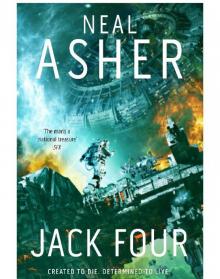 Jack Four
Jack Four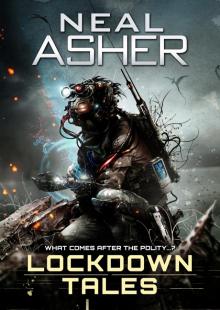 Lockdown Tales
Lockdown Tales The Warship
The Warship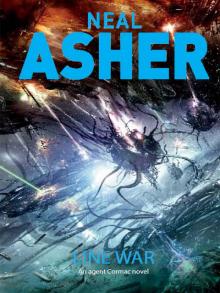 Line War
Line War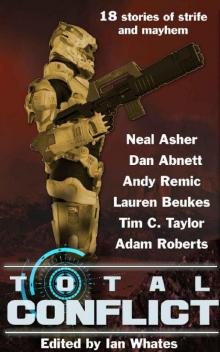 Total Conflict
Total Conflict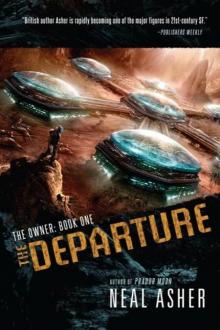 The Departure
The Departure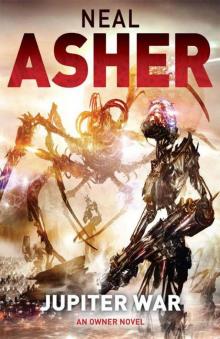 Owner 03 - Jupiter War
Owner 03 - Jupiter War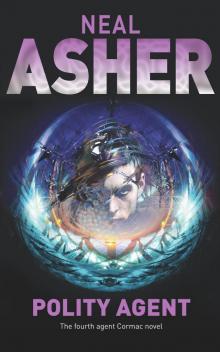 Polity Agent
Polity Agent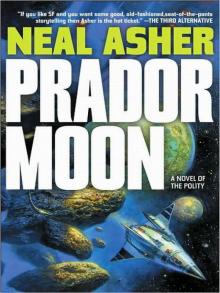 Prador Moon
Prador Moon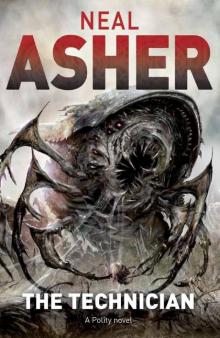 The Technician
The Technician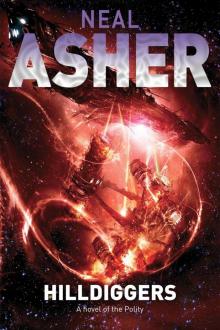 Hilldiggers
Hilldiggers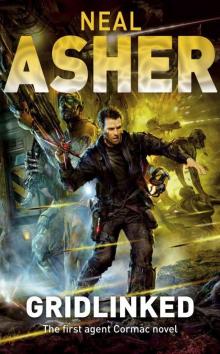 Gridlinked
Gridlinked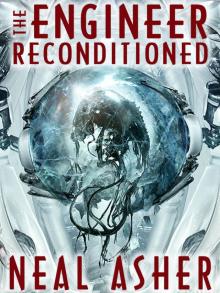 The Engineer ReConditioned
The Engineer ReConditioned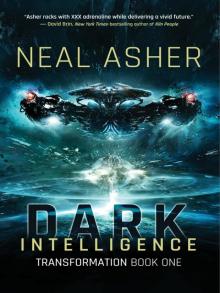 Dark Intelligence
Dark Intelligence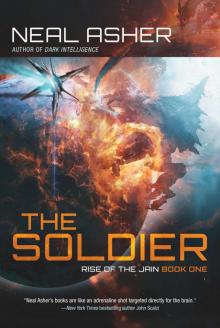 The Soldier: Rise of the Jain, Book One
The Soldier: Rise of the Jain, Book One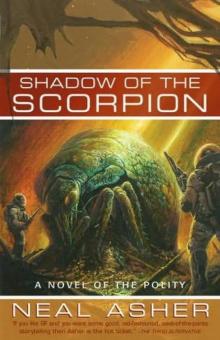 Shadow of the Scorpion p-2
Shadow of the Scorpion p-2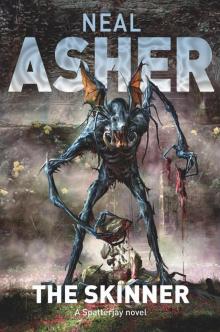 The Skinner
The Skinner The Soldier
The Soldier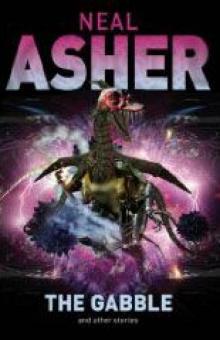 The Gabble p-13
The Gabble p-13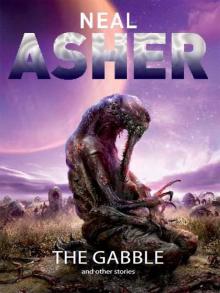 The Gabble and Other Stories
The Gabble and Other Stories The Parasite
The Parasite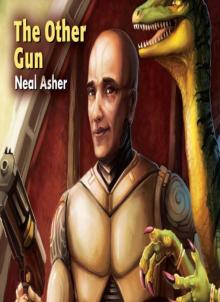 The Other Gun
The Other Gun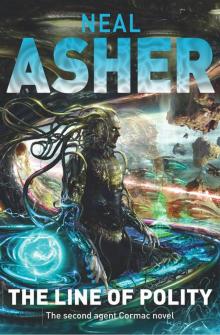 The Line of Polity
The Line of Polity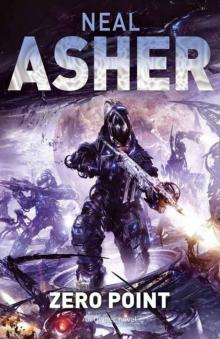 Zero Point (Owner Trilogy 2)
Zero Point (Owner Trilogy 2)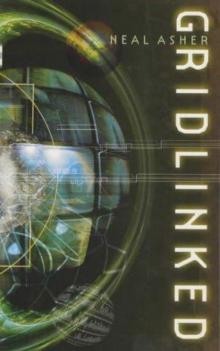 Gridlinked ac-1
Gridlinked ac-1 Prador Moon p-1
Prador Moon p-1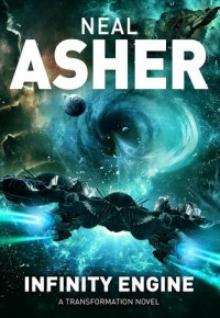 Infinity Engine
Infinity Engine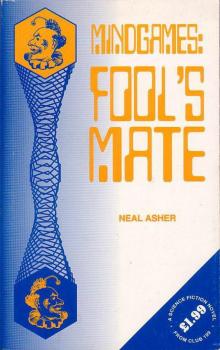 Mindgames: Fool's Mate
Mindgames: Fool's Mate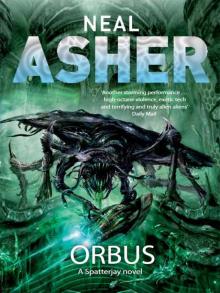 Orbus
Orbus Africa Zero
Africa Zero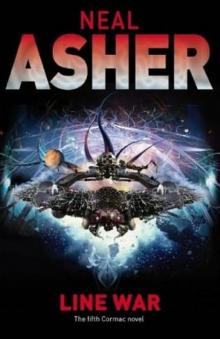 Line War ac-5
Line War ac-5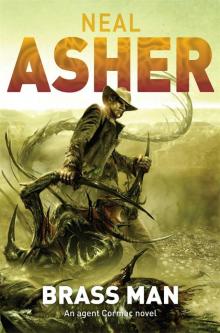 Brass Man
Brass Man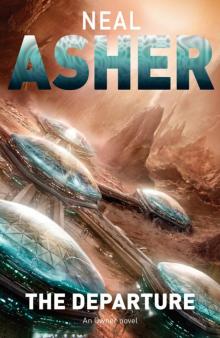 The Departure to-1
The Departure to-1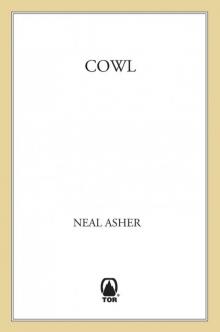 Cowl
Cowl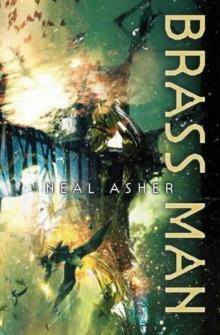 Brass Man ac-3
Brass Man ac-3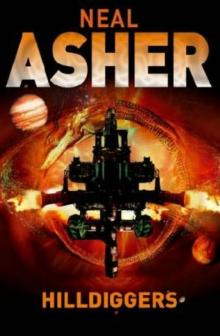 Hilldiggers (polity)
Hilldiggers (polity)![Greg Bear - [Eon Trilogy 1] - Eon (rescan) (v1.0) Read online](http://i1.bookreadfree.com/i2/04/08/greg_bear_-_eon_trilogy_1_-_eon_rescan_v1_0_preview.jpg) Greg Bear - [Eon Trilogy 1] - Eon (rescan) (v1.0)
Greg Bear - [Eon Trilogy 1] - Eon (rescan) (v1.0) The Skinner s-1
The Skinner s-1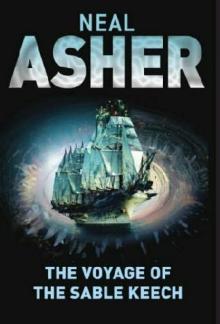 The Voyage of the Sable Keech s-2
The Voyage of the Sable Keech s-2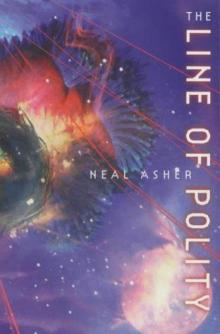 The Line of Polity ac-2
The Line of Polity ac-2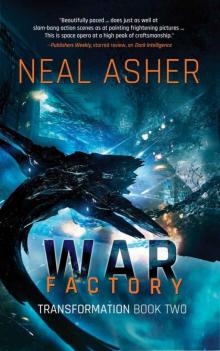 War Factory: Transformations Book Two
War Factory: Transformations Book Two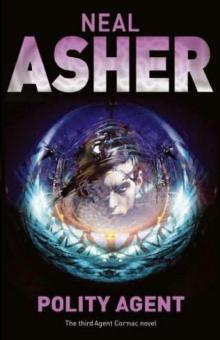 Polity Agent ac-4
Polity Agent ac-4